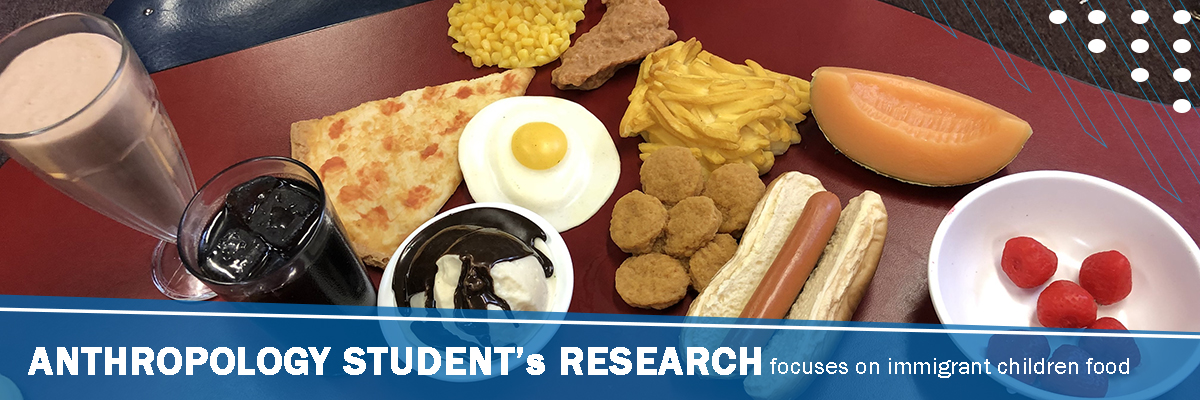E-Files
Student Highlights in Anthropology

JUDE SNOWDEN, MA Practicum Research
Their research focuses on Nepali and Congolese immigrant children’s attitudes towards government-subsidized foods in an educational day camp for low-income children. As part of the anthropology department's practicum for the master's in applied anthropology, this study focused on solving real-world problems, in this case, the high percentage of food that goes uneaten in the program. This study involved 32 students age 5 to 14, 9 staff members, 135 hours of participant observation, 8 interviews, 10 mealtime video recordings, and 10 days' worth of food waste data. With Garth's theory of food adequacy as a lens for interpreting the data collected, a few preliminary conclusions stick out as worthy of note: Students' largest complaint was the lack of hot food, which reflects cultural norms in their homes that a meal involves hot food. Similarly, children frequently signaled a distaste for the food’s presentation, temperature, and lack of seasoning through complaints, attempts to mix together foods to produce something with more flavor, and the piles of uneaten foods lying in the trashcans.
Submitted by Dr. Micah M. Trapp, Ph.D. (she/her/hers)
